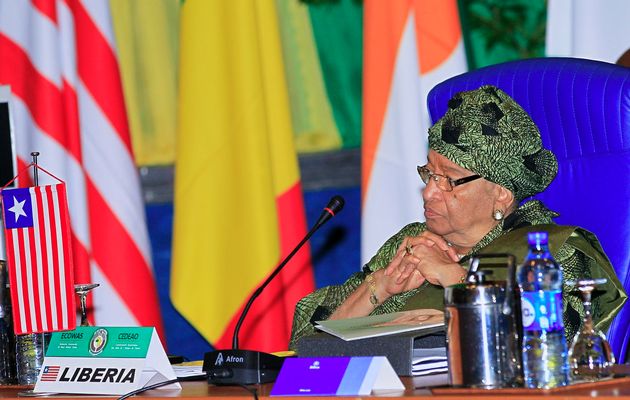The latest number of casualties of the incurable Ebola is 603 with 68 deaths reported last week alone, according to WHO statistics. Sierra Leone had the highest number of deaths, which include confirmed, probable and suspect cases of Ebola, with 52. Liberia reported 13 and Guinea 3.
The spread of the virus shows no sign of abating despite the daring efforts of medical scientists, aid providers and authorities.
The WHO lamented the continued high levels of transmission stating that that there were 85 new cases between July 8 and 12. Another huge worry highlighted by the world health body is the hostility international and local medics face while trying to get access to communities. Residents of some communities fear that outsiders are spreading rather than fighting Ebola.
“It’s very difficult for us to get into communities where there is hostility to outsiders,” Reuters quotes WHO spokesman Dan Epstein as telling a news briefing in Geneva. “We still face rumours, and suspicion and hostility. … People are isolated, they’re afraid, they’re scared.”
These rumours, suspicions, hostilities and most of all fears have also crumbled businesses in these affected countries and could as well cripple their economies.
Since the first officially reported case broke in Guinea on March 21, virtually all multinational companies in the country have packed up. On April 3 Reuters reported that “foreign mining firms have locked down operations in Guinea and pulled out some international staff, executives”. Brazilian iron ore miner Vale said its VBG joint venture with Israeli BSG Resources (BSGR) also stopped work, pulling its international staff out of Guinea and giving its local workers an indefinite leave from work. Given that Guinea’s (very weak) economy is largely dependent on its mining exports, the impact of the shut mining firms will unarguably be devastating.
Also devastating is the closing of borders by its neighbours. Although Senegal have since re-opened its border- which it closed in March -Ivory Coast this week announced it was shutting its own border crossing.
Trade and commerce have also been hit hard, HNGN reported the cancelation of a weekly market that took place in Guinea’s southern region of Kolda- an important mode of commerce that attracts thousands of people who trade and purchase various goods.
Hospitality and tourism has also taken a huge hit, in April Reuters reported that Conakry’s luxury five-star Palm Camayenne Hotel, popular among businessmen and politicians, is running at less than a third of occupancy. There is a dearth of flights in and out of Guinea. Gambia Bird, a regional airline, delayed the start of a route to Conakry because of the outbreak.
Sierra Leone’s situation is very similar. In June London Mining became the first of the mining companies to announce that it was evacuating its staff from the country.
Liberia’s case is not different either. However, the impact of the Ebola epidemic have been most felt in Liberia’s bush meat business. The West African country has a strong affinity with the consumption of bush meat and its sale is the main business of many. With the ban on the sale and consumption of bush meat, citing Ebola’s origination from Monkeys, Bats, Chimpanzee and other bush animals, many businesses have packed up. The affinity with bush meat, just as the strong advice against its sale and consumption, is not limited to Liberia; Guinea and Sierra Leone have been heavily affected too. Even Ivory Coast, which doesn’t have a reported case yet, took the pre-emptive step to ban the sale and consumption of bush meat in the country, crumbling also many of the businesses dependent on it.
The general apprehension across the Ebola affected countries and their neighbours countries is
further dampening the business climate. Health authorities in Liberia even warned against shaking hands because the virus can be contracted through close contact and body fluids. Thus, people are more inclined to impose on themselves as much restriction from others as possible.
There has also been a huge injection of government funds on the fight against the Ebola Virus, and the economies of these three countries were weak even before the outbreak of the virus. The governments have already pleaded their inability to unilaterally fight the epidemic with Sierra Leone’s health minister begging the international community for more money to halt the spread of the disease. The World Health Organisation also disclosed that it needs about $10 million for resources to enable it contain the ongoing Ebola outbreak in West Africa for the next six months. All these monies going into the fight against Ebola would have done so much for the economic development of the sub-region.
Thus, aside its apparent and potent attack on human lives, Ebola is as well hurting human capital, deflating investments – especially foreign direct investment – discouraging businesses, distracting the focus on growth, and most of all destroying the economy of the affected countries.
Given the sad admission by WHO spokesman Dan Epstein that “It’s probably going to be several months before we are able to get a grip on this epidemic”, it may get worse, before it gets better. What is most important then, is a collective international effort to beat this pandemic, described by WHO Director-General Margaret Chan as “the world’s worst ever by number of cases”. Nigeria has led in this part, promising $3.5 million to support the affected countries.
However, the world cannot stop at beating Ebola, it must also help the affected countries and her peoples build back their lives socially and most importantly economically.



